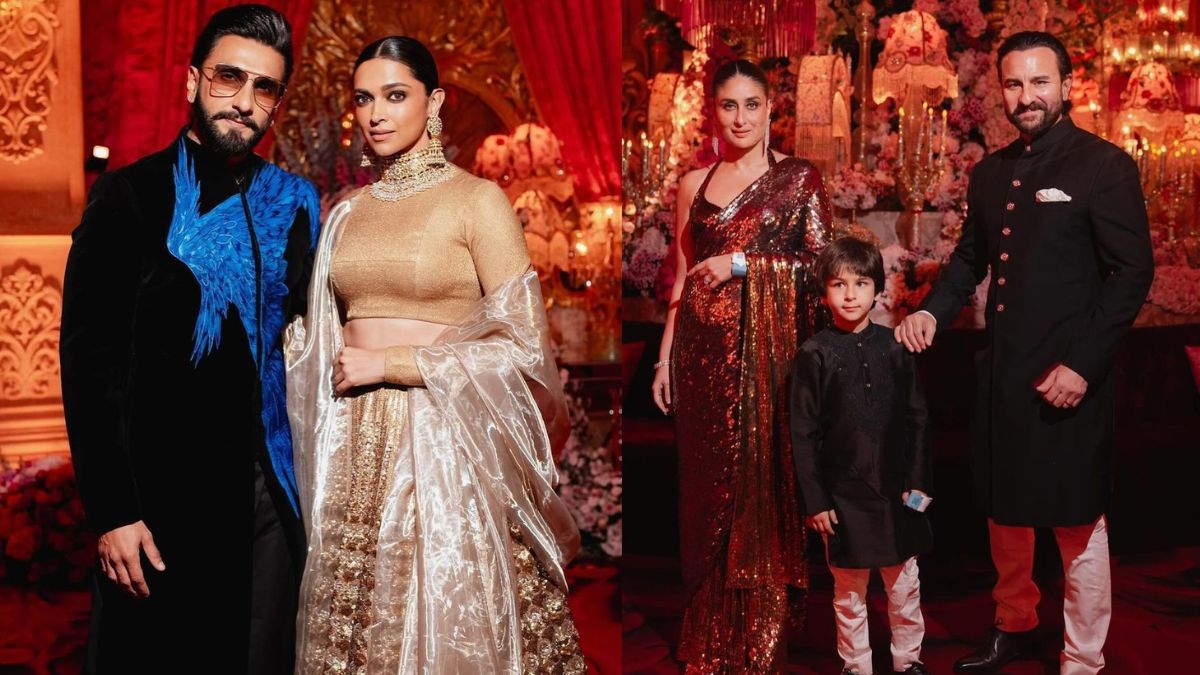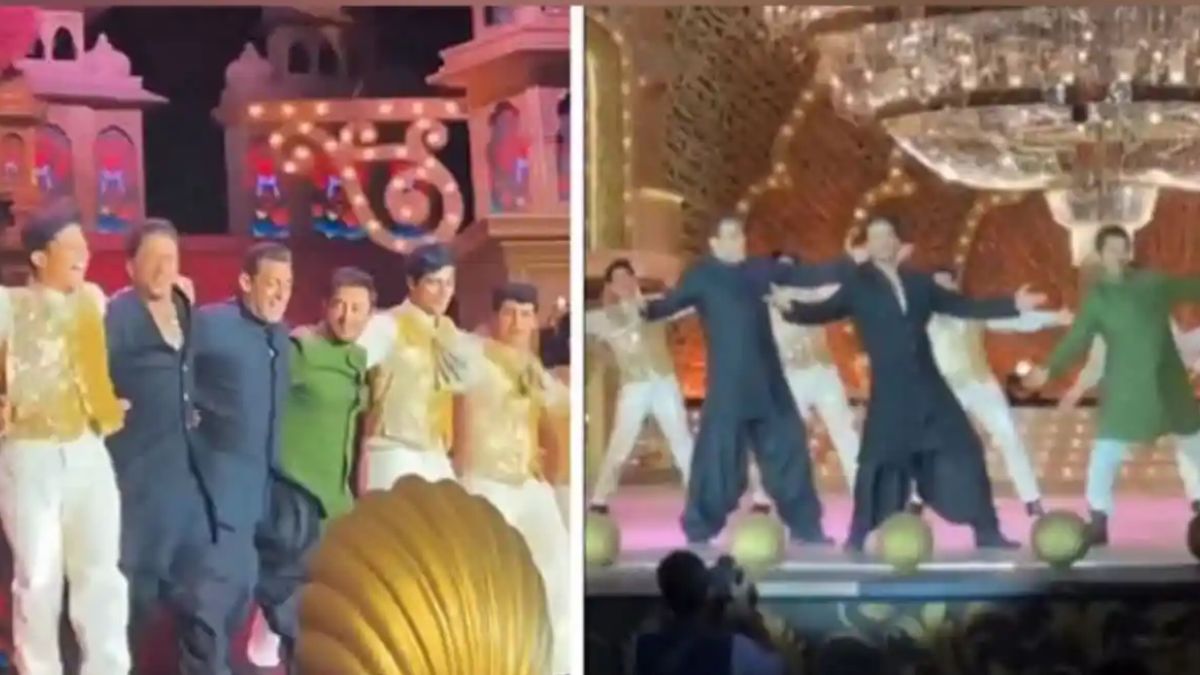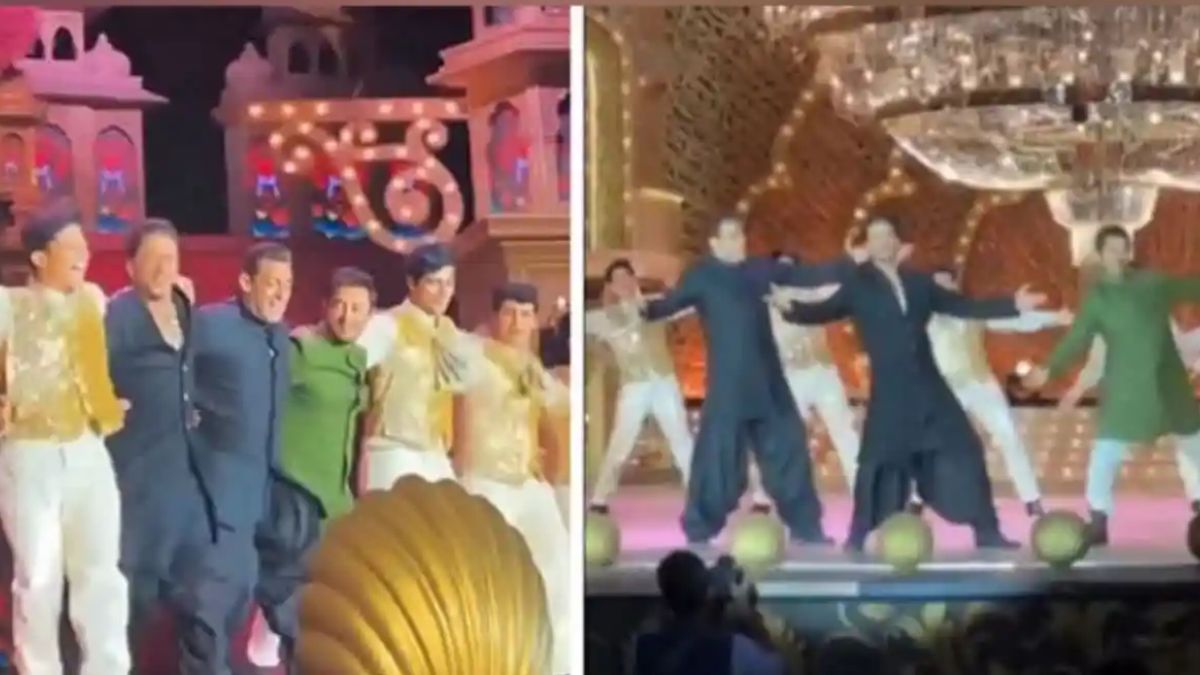What does it mean to be in love? What keeps one wanting to be with someone for all our lives? Is love a destination, a landmark to reach, or a long complex journey in itself?
If you ask Hindi films, the solution has been rather simple and narrow. Our heroes and heroines have often found eternal love either on college campuses, ravished by each other’s youth and beauty. ‘Love at first sight’ was the go-to mantra for the longest time. And even though mainstream cinema eventually explored the realms of love finding its way through platonic friendship, most popularly in films like Maine Pyar Kiya and Kuch Kuch Hota Hai, it still remained an emotion purely found on sentimental terms. A love story borne out of similar beliefs or ideologies was still a rare sight.
Saath Saath, the 1982 film directed by Raman Kumar, featuring Deepti Naval and Farooq Shaikh, is a memorable piece of commentary on the Hindi film norms itself, for here is a love story that begins not because of physical attraction but intellectual and philosophical affinity, and also comes close to crumbling down because of the lack of it later on.
One of the fewer pre-21st century films to have dealt with the post-marriage phase of a relationship, apart from Basu Bhattacharya films — long before films like Saathiya and Chalte Chalte ushered in the wave of marriage films in the mainstream, Saath Saath looks into what happens after the “they lived happily ever after” tagline. But most importantly, Saath Saath is about the inevitable battle between idealism and pragmatism in modern society, and a rare film that explores this conflict through the evolving relationship of a young idealistic married couple.
Gita [Deepti Naval> and Avinash [Farooq Shaikh> meet in college where Gita finds herself attracted to Avinash because of his socio-politcal sensitivity and what he stands for. Gita might have been from a rich, upper-class family but her sensibilities always remain level-headed and open to newer ideas, and she is thrilled with the idea of Avinash’s daily struggle, in which she sees a sense of achievement on an everyday basis. Gita even rechristens him ‘Columbus,’ inspired by his seeming perennial quest for a different, better world.
It seems occasionally that Gita is borderline romanticising Avinash’s poverty and hardships to channel her own feelings of alienation. At one point, when Avinash goes off on a diatribe about society and corruption, he turns out to see Gita smiling at him, admiring his zeal and intensity. Avinash is miffed, but Gita continues to smile. However, as we realise eventually that Gita is a strong-headed woman in complete control of her feelings and decisions, and this is a story from her perspective, about the building of idealism and the unfortunate collapse of it.
When Avinash asks her to marry him, she does not think twice. And even later, when her parents confront her, Gita clarifies that she is not one bit ashamed of her decision. Gita talks the talk and walks the walk, immediately adapting herself to her new circumstances, which is a shabby single room-kitchen and budgeted meals at restaurants. She displays a similar strength when she tells Avinash towards the end about her intentions to walk out of the marriage. Very fittingly, in a narrative that is about the fall of a morally conscientious man, the final song nonetheless arrives from Gita, who laments, “Kyun Zindagi ki Raah Mein Majboor Ho gaye, Itne hue kareeb ke hum door ho gaye.”
There are moments when Avinash seems to romanticise his own struggle. He describes his human stories-based journalism as ‘Adhoore khwabon ko likhna’ [jotting down the incomplete dreams>. When Gita asks him at one point why he finds life so bad, he clarifies, “Buri nahi, udaas.” And at his most resilient, he leaves a note on his writing board, “I am not ready to be sold, for I am a human.” It is this herculean level of rebellion that Gita finds herself enamoured by. She almost creates a god out of him — but the truth remains that Avinash is a fallible human being who gives up eventually to the conventional ideas of success and prosperity.
There are some telling moments that foreshadow Gita’s eventual sense of betrayal. At one point, when Gita keeps trying to keep the relationship going, Avinash points out there is a real world outside the college, possibly aware subconsciously of the limits of his resistance and rebellion if Gita joins him in his struggle. In another sequence, Gita laments the disowning by her parents after she professed her love for Avinash. She is stunned not by the abandonment, but by how quickly it happens. Little does she know that soon she will see a different side to Avinash himself.
Avinash’s vagary might seem a little convenient at first, but its grounds are adequately laid in his post-marriage conversations with Gita. When Gita realises she is pregnant — in a first of sorts for a protagonist, she suggests aborting the child considering practical issues. But this makes Avinash feel weak and inferior, jolting him out of his idealism. Avinash’s inclination to transform and ‘leave the principles behind’ comes from a conventional masculine urge to take care of Gita, and protect her from the ills of the world. On their first date after marriage, Avinash tells Gita that life should not be ugly and that being poor is definitely a weakness, if not necessarily wrong. We first see Avinash as a failed author who gets his manuscripts and stories rejected for being too real and then witness the trajectory as he rejects the work of a socially conscious novelist, stating nobody wants to read it, and later on schemes up a plan to minimise royalty pays to writers. He also suddenly feels embarrassed of his small house, wishing for a bigger space to entertain his friends.
What he does not realise is that Gita loved his independent self, who was not bogged down by any social ties or obligations. Saath Saath, in this regard, reminds one of Imtiaz Ali’s Tamasha [2015>, which too carried the themes of individuality, conformity, and societal constructs. Towards the end, when Gita asks Avinash if he is leaving his job for her, he clarifies that he is doing it for himself too. Avinash realises, so do we, that to love someone is to show a willingness to protect yourself, instead of protecting someone else at the cost of your sanctity.
Saath Saath stays relevant because of the dividing times that we live in where each passing day tells us about the importance of moral and philosophical equilibrium in personal relationships.
We need to understand the people we love, and as the end card of the film tells us, “Love is not merely looking at each other, but looking in the same direction… together.”
In the best segment of the film, Kumar joins the protagonists in their collective romanticism, and in a beautiful montage, we see a working couple communicating merely through handwritten notes they leave for each other [Avinash takes up a night job, while Gita teaches primary school kids in the day hours>. We realise they have not met each other in days probably, and yet there is a sense of peace in their voices as they stick the final note on the board, “Ye Ghar Bahut Haseen Hai."
Saath Saath also has one of the most underrated soundtracks of all time. Kuldeep Singh did not score for too many major films later on but here, he lends a beautiful supplement to the narrative with his evocative songs — be it the iconic ‘Tumko Dekha To Ye Khayal Aaya’ or the melancholic ‘Pyaar Jo Mujhse Kiya Tumne.’ But undoubtedly, the tour-de-force sequence of the film is the one set to ‘Ye Tera Ghar Mera Ghar,’ where Gita and Avinash sing, “If you want to see our house, you need to borrow our vision, our view,” as they begin their marital life, doing the chores together and setting up the home.
For a film that talks about the beauty of ideological sync between partners, this song perfectly encapsulates that spirit — of finding beauty in the simplest things, of the possibility of creating a world of one’s own, as long as they are looking in the same direction.
BH Harsh is a film critic who spends most of his time watching movies and making notes, hoping to create, as Peggy Olsen put it, something of lasting value.
Read all the Latest News , Trending News , Cricket News , Bollywood News , India News and Entertainment News here. Follow us on Facebook , Twitter and Instagram .


)




)
)
)
)
)
)
)
)